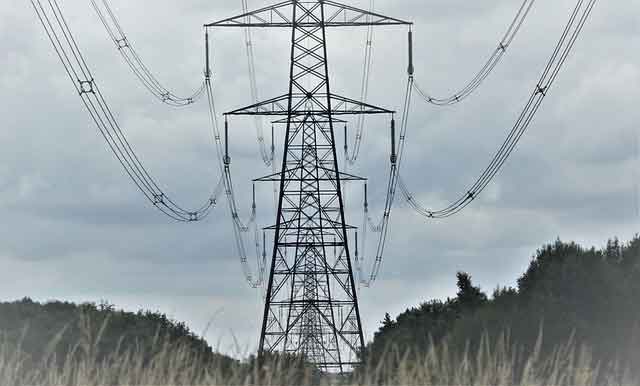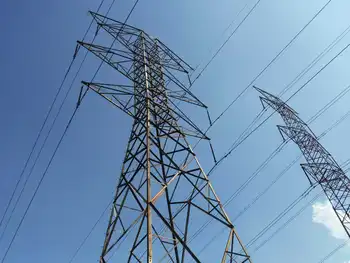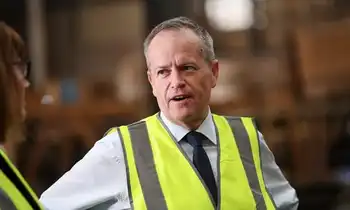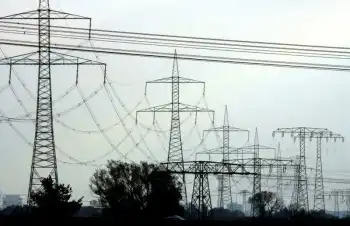Renewable energy mandate creates confusion
MISSOURI - Promised thousands of clean energy jobs and a reduced dependence on coal, Missourians voted in the fall of 2008 to require AmerenUE and other electric utilities to increase their use of renewable energy.
The ballot initiative, Proposition C, required the state's four investor-owned electric utilities to buy or generate 2 percent of electricity from renewable fuels beginning in 2011, an amount that would increase to 15 percent by 2021. At least 2 percent has to be solar electricity.
The ballot initiative faced no organized opposition. More than two dozen other states already had similar renewable energy laws, including Illinois. Kansas City Power & Light even endorsed the measure, which was approved by two-thirds of voters.
But persuading the public to embrace clean energy is one thing, writing a set of detailed rules to implement the law is another. After months of debate among utilities, consumer groups and others with competing interests, the so-called renewable energy standard is mired in confusion.
In July, a legislative committee struck down a controversial provision of rules approved by the Missouri Public Service Commission. No fewer than four parties are challenging the commission's rules in court. Utilities, facing a 2011 deadline, aren't sure how to comply with the law. And customers don't know what it will cost.
"We need clarity around the investments, and right now it doesn't exist," said Warren Wood, executive director of the Missouri Energy Development Association, the lobbying organization for the state's investor-owned utilities.
MEDA is one of the groups challenging the rules in court. So is AmerenUE, Joplin-based Empire District Electric Co. and the Missouri Industrial Energy Consumers, a group of 19 of the state's biggest energy users.
"We want to support development of renewables in Missouri," said Steve Kidwell, vice president of regulatory and legislative affairs for AmerenUE. "We're about 85 percent coal right now, and we see the need to diversify that. However, we want to make sure that the Proposition C that gets implemented through the PSC's rules is as close as possible to what the voters approved."
The rules approved by the PSC in a 3-2 vote this year would have required utilities to buy or build renewable power in Missouri or a nearby state.
Utilities and consumer advocates — groups frequently at odds with each other — balked. They said the geographic restriction imposed would be too costly. And Proposition C already included an incentive for developing clean energy projects in Missouri.
Instead, utilities want the ability to comply with the law by subsidizing wind and solar farms across a much broader area of central North America through the purchase of renewable energy certificates. Missouri is associated with two regional power grids that span parts of 18 states and a Canadian province.
Renewable energy certificates, or RECs, are tradable pieces of paper that represent each megawatt-hour of renewable power generated. In theory, they help displace fossil fuel-generated electricity by aiding development of clean energy projects. But projects associated with the RECs may be hundreds of miles away.
Investing in renewable energy projects as far away as eastern New Mexico or Manitoba, Canada, does little to spur new clean energy projects in Missouri, said Henry Robertson, a lawyer with the Great Rivers Environmental Law Center, who drafted Proposition C.
"A major part of Proposition C was to spur economic development, green jobs and renewable energy here in Missouri," he said.
The Joint Committee on Administrative Rules, a committee of 10 lawmakers tasked with reviewing the commission's order, sided with the utilities and rejected the geographic limitations.
The Legislature must affirm the committee's decision within a month of the next legislative session or the PSC's rule takes effect as it was originally approved.
Meanwhile, the commission is trying to bring the parties back to the table in hopes of crafting a compromise.
Even if that happens, another, related controversy looms — one that affects how much Missourians pay for the additional green power.
The dispute centers on a 1 percent rate cap included in Proposition C to assuage fears that the law would inflate electric bills.
Utilities and customer groups say the PSC rules regarding the rate cap are ambiguous and unclear.
Most parties agree the cap limits electric rates from going up more than 1 percent over what they would be if the law didn't exist. But calculating what electric rates would be without Proposition C opens the door to years of debate over hypothetical costs.
In the end, the impact to homeowners and businesses remains uncertain.
"It's really important to sort that out. If we don't, the costs are hard to define," said Diana Vuylsteke, a Bryan Cave lawyer who represents the Missouri Industrial Energy Consumers. "For businesses that are thinking about coming to Missouri, certainty is important."
Utilities, consumer groups and renewable energy advocates have debated the rules for months without an agreement.
But PSC Commissioner Robert Kenney said he is confident the parties can craft a compromise that promotes green energy development, protects customers and avoids months of litigation.
"I remain optimistic that some sort of solution can be reached," he said.
Related News

Bomb Cyclone Leaves Half a Million Without Power in Western Washington
SEATTLE - A powerful "bomb cyclone" recently hit Western Washington, causing widespread destruction across the region. The intense storm left more than half a million residents without power, with outages affecting communities from Seattle to Olympia. This weather phenomenon, marked by a rapid drop in atmospheric pressure, unleashed severe wind gusts, heavy rain, and flooding, causing significant disruption to daily life.
The bomb cyclone, which is a rapidly intensifying storm, typically features a sharp drop in barometric pressure over a short period of time. This creates extreme weather conditions, including gale-force winds, torrential rain, and coastal flooding. In Western Washington,…




